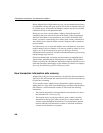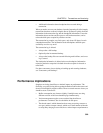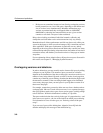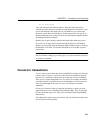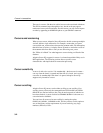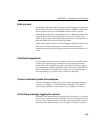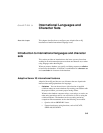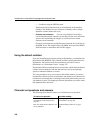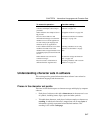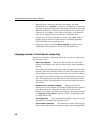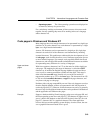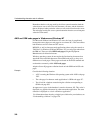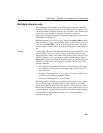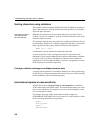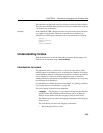
Introduction to international languages and character sets
316
• Conditions using the LIKE keyword.
IQ indexes that hold character data are created based on the database
collation. The database also uses collations to identify valid or unique
identifiers (column names and so on).
• Character set translation You can set up Adaptive Server IQ to
convert data between the character set encoding on your server and client
systems, thus maintaining the integrity of your data even in mixed
character set environments.
Character set translation is provided between client and server, and also by
the ODBC driver. The Adaptive Server IQ ODBC driver provides OEM to
ANSI character set translation and Unicode support.
Using the default collation
If you use the default actions when creating an IQ database, your database has
the collation ISO_BINENG. This collation provides optimal performance for
IQ databases, but not necessarily the most natural sort order. For more
information, see “Performance issues” on page 352.
Note that this differs from Adaptive Server Anywhere, which infers the default
collation for new databases from the character set in use by the operating
system on which the database is created.
If it is not possible to set up your system in this default manner, you need to
decide which collation to use in your database, and whether to use character set
translation to ensure that data is exchanged consistently between the pieces of
your database system. This chapter provides the information you need to make
and implement these decisions.
Character set questions and answers
The following table identifies where you can find answers to questions.
To answer the question... Consider reading...
How do I set up my computing
environment to treat character sets
properly?
“Configuring your character set
environment” on page 344
How do I decide which collation to use
for my database?
“Understanding collations” on page
328



